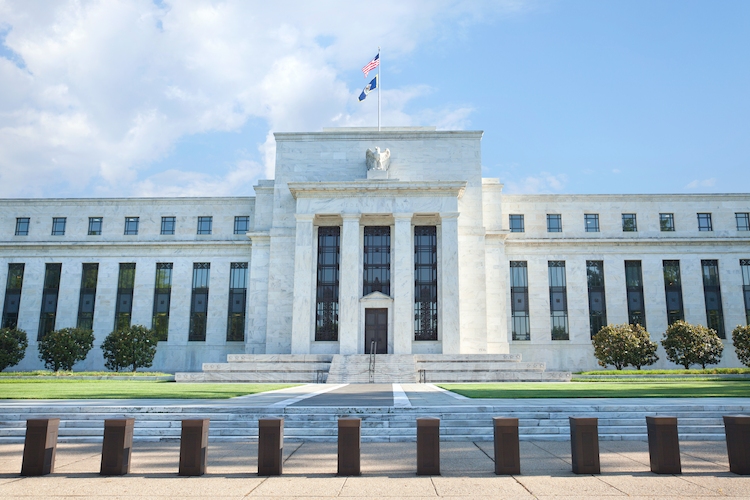U.S. Supreme Court Upholds CFPB Funding Scheme

In Consumer Financial Protection Bureau v. Community Financial Services Assn. of America, Ltd., 601 U.S. ____ (2024), the U.S. Supreme Court upheld the funding scheme that supports the Consumer Financial Protection Bureau (CFPB or Bureau). By a vote of 7-2, the Court held that Congress’ statutory authorization allowing the CFPB to draw money from the earnings of the Federal Reserve System to carry out the bureau’s duties satisfies the Constitution’s Appropriations Clause.
Facts of the Case
The case centers on the Constitution’s Appropriation Clause, which commands that “[n]o Money shall be drawn from the Treasury, but in Consequence of Appropriations made by Law. As the Supreme Court explained in Cincinnati Soap Co. v. United States, 301 U.S. 308, 321 (1937), the clause essentially means that “no money can be paid out of the Treasury unless it has been appropriated by an act of Congress.”
For most federal agencies, Congress provides funding through appropriations on an annual basis, requiring those agencies to ask Congress for renewed funding each year. The CFPB is unique in that it does not have to petition Congress for funds each year. Instead, Congress authorized the Bureau to draw from the Federal Reserve System the amount its Director deems “reasonably necessary to carry out” the Bureau’s duties, subject only to an inflation-adjusted cap. The Bureau can also retain and invest unused funds from year to year, though the Director must take into account any surplus when requesting additional funds.
In this case, several trade associations representing payday lenders and credit-access businesses challenged regulations issued by the Bureau pertaining to high-interest consumer loans on both statutory and constitutional grounds. Among other arguments, the associations alleged that that the Bureau “takes federal government money without an appropriations act” in violation of the Appropriations Clause. The Fifth Circuit Court of Appeals agreed, holding that the CFPB’s funding mechanism violates the Appropriations Clause.
Supreme Court’s Decision
The U.S. Supreme Court reversed by a vote of 7-2. Justice Clarence Thomas wrote on behalf of the majority.
As Justice Thomas explained, the associations’ challenge turned solely on whether the Bureau’s funding mechanism constitutes an “Appropriatio[n] made by Law.” The majority ultimately concluded that a valid appropriation must satisfy the minimum requirements of an identifiable source of public funds and purpose.
“Based on the Constitution’s text, the history against which that text was enacted, and congressional practice immediately following ratification, we conclude that appropriations need only identify a source of public funds and authorize the expenditure of those funds for designated purposes to satisfy the Appropriations Clause,” Justice Thomas wrote.
The Supreme Court went on to find that the CFPB’s funding statute contains the requisite features of a congressional appropriation. “The statute authorizes the Bureau to draw public funds from a particular source—’the combined earnings of the Federal Reserve System,’ in an amount not exceeding an inflation-adjusted cap,” Justice Thomas explained. “And, it specifies the objects for which the Bureau can use those funds—to ‘pay the expenses of the Bureau in carrying out its duties and responsibilities.’”
Previous Articles
SCOTUS Decision in Bowe v. United States Is First of the 2026 Term
by DONALD SCARINCI on February 5, 2026
In Bowe v. United States, 607 U.S. ___ (2026), the U.S. Supreme Court held that Title 28 U.S.C. § ...
SCOTUS Rules State Can’t Immunize Parties from Federal Civil Liability
by DONALD SCARINCI on January 29, 2026
In John Doe v. Dynamic Physical Therapy, LLC, 607 U.S. ____ (2025) the U.S. Supreme Court held that...
Supreme Court to Address Racial Discrimination in Jury Selection
by DONALD SCARINCI onWhile the U.S. Supreme Court has concluded oral arguments for the year, it continues to add cases t...
The Amendments
-
Amendment1
- Establishment ClauseFree Exercise Clause
- Freedom of Speech
- Freedoms of Press
- Freedom of Assembly, and Petitition
-
Amendment2
- The Right to Bear Arms
-
Amendment4
- Unreasonable Searches and Seizures
-
Amendment5
- Due Process
- Eminent Domain
- Rights of Criminal Defendants
Preamble to the Bill of Rights
Congress of the United States begun and held at the City of New-York, on Wednesday the fourth of March, one thousand seven hundred and eighty nine.
THE Conventions of a number of the States, having at the time of their adopting the Constitution, expressed a desire, in order to prevent misconstruction or abuse of its powers, that further declaratory and restrictive clauses should be added: And as extending the ground of public confidence in the Government, will best ensure the beneficent ends of its institution.





